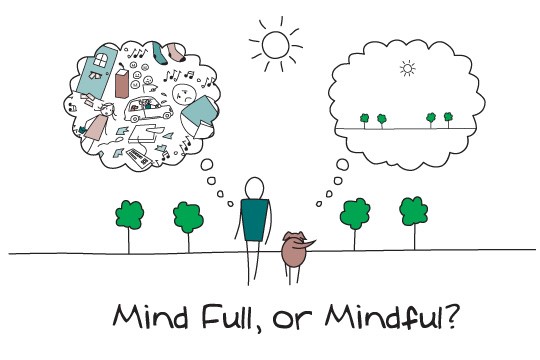The scientific term for self-awareness is interoception. This is part five of my commentary and synopsis of The Body Keeps the Score, Brain, Mind and Body in the Healing of Trauma by Bessel van der Kolk.

1. INTRODUCTION: Childhood Trauma Causes Addiction
2. 12 Steps & 12 Traditions: Damaging Emotional Conflicts
3. Trauma Damages Left Brain Speech
4. BIOFEEDBACK: Meditative States of Consciousness
5. INTEROCEPTION: Traumatic Awareness
6. What Were You Thinking Right Before You Acted Out Your Childhood Trauma?
7. Communication is the Opposite of Trauma
8. ALEXITHYMIA: Inability to Feel Emotion
9. EMDR Reprocesses Body Awareness and Does Not Visit the Original Trauma in Detail
10. EMDR is for Patients So Traumatized That Full Recovery is Thought to Be Impossible.
11. Lock Down Your Childhood Trauma Instead of Acting it Out
12. Final Healing: The Patient’s Internal Landscape Manifests Critical Mass of Self
13. Eye Movement Desensitizing Reprocessing of Traumatic Memories
5. Traumatic Awareness
Interior things are discerned by interoception. In much the same way that spiritual things are spiritually discerned, emotional things are emotionally discerned. Our emotions exist within our limbic systems. The only way to access our emotions is by practicing the ancient Eastern art of self-awareness.
Interoception is accomplished by consciously activating the limbic system located within the medial prefrontal cortex. This is the part of our brain that allows us to feel what we are feeling. The scientific term for self-awareness is interoception.
Meditation is Interoception
During meditation interoception is the process whereby the thinker observes his thoughts without actively engaging those thoughts. The Zen master can feel his emotions without actively engaging those emotions. Controlling the emotions is the most important component of healing trauma.
Healing trauma by conquering our own minds
Most of our consciousness is devoted to focusing on the external world: dealing with other people, places and things. However, this does not help us to manage ourselves. Meditation teaches us that the only way we can change our emotional state is by becoming self-aware of our inner experience. Good leaders lead other people, great leaders practice self-leadership. The greatest warrior learns to conquer his own mind before he conquers the world.
Breathing is an indication of our emotional state
We can train and master our arousal system by the way we breathe, chant and move. When we are upset or anxious be breath shallow. We hold our breath when we are scared. Last night I caught myself holding my breath while watching an exciting and suspenseful motion picture! Slow, deep and full breathing helped heal me of my anxiety. By breathing in fully and holding the breath for a moment, and then exhaling completely and waiting a moment before you inhale, you can reach an optimal emotional state of calmness. These are basic principles taught by yoga masters for optimal meditation. Yoga is about breathing during meditation. One of the constant themes in this website is yoga and meditation. In yesterday’s blog I wrote about how we can dial in our perfect meditative state by monitoring our THETA brain waves with EEG machines. My mind is obsessed with meditation and mindfulness. Meditation is the key to my happiness. Writing these blogs reminds me to stay in a constant state of meditation. Getting my body to stay in a corresponding state of constant mindfulness requires emotional control
PRACTICING MEDITATION WHILE PRACTICING DIFFICULT YOGA ASANAS IS PRACTICING EMOTIONAL CONTROL
The ancient traditions of the East rely upon mindfulness, movement, chanting and the rhythmic action of yoga tai chi and qigong. Going to the edge of your ability to attain perfect form of a difficult yoga asana develops the ability to control your emotions. Your body may not be able to perfectly perform the posture but your emotional state can remain perfectly calm.
Mainstream Western psychiatric and psychological healing traditions are focused on over reliance upon pharmaceutical and verbal therapies. Would you rather be on psychiatric medications and totally reliant upon your therapist, or would you rather play an active role in your own healing by practicing yoga and mindfulness?



